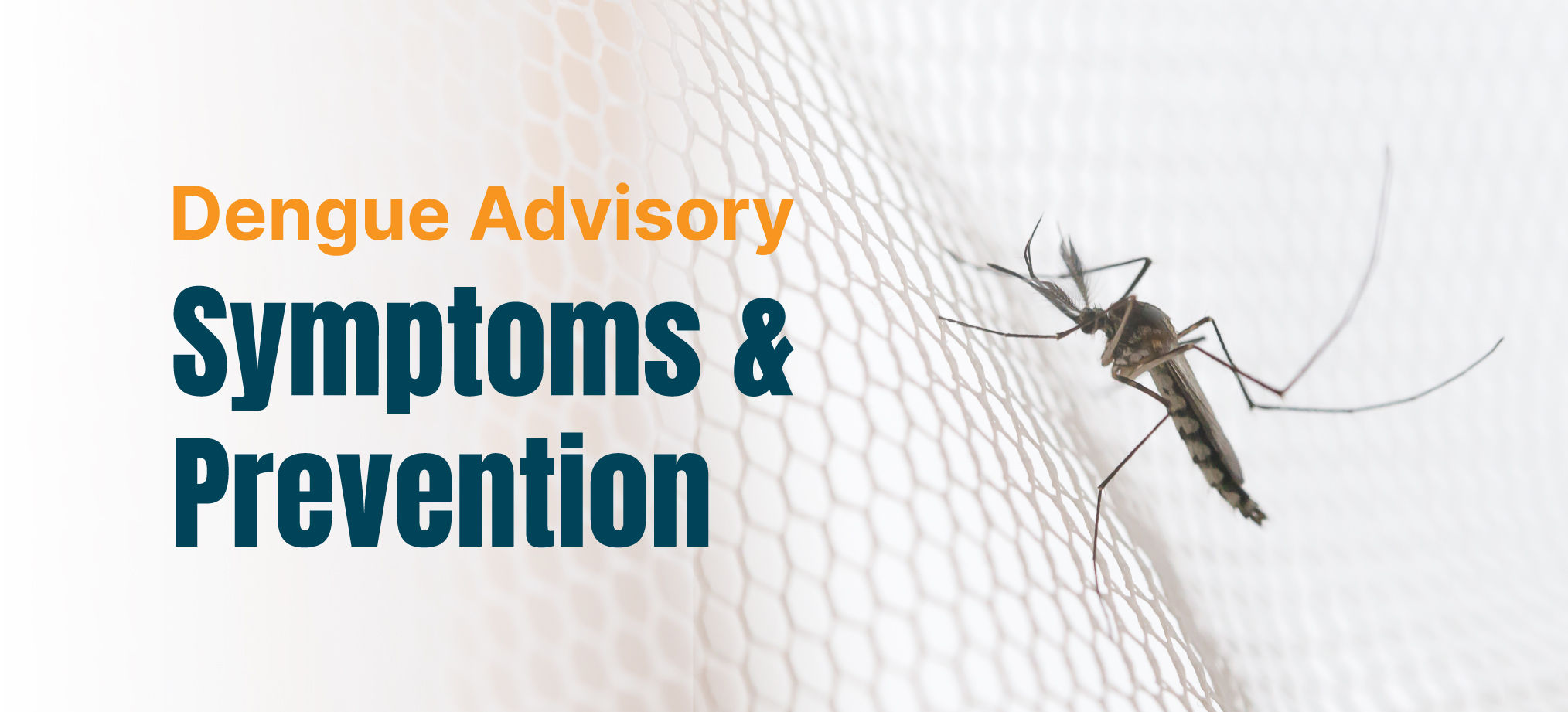General Health
How to Prevent the Deadly Dengue Fever
4 min read
By Apollo 24/7, Published on - 15 October 2021, Updated on - 09 February 2023
Share this article
1
22 likes

With seasonal transitions, many people become vulnerable to several bacterial and viral infections. Since viruses cannot thrive in an extremely hot or cold environment, the shift in temperature allow them to flourish and spread contagious diseases. One such viral disease is dengue, which is caused by one of the four types of dengue viruses (DENV-1, 2, 3 or 4) belonging to the Flaviviridae family.
Dengue is a mosquito-borne disease as the infection is transmitted through the bite of infected Aedes aegypti or Aedes albopictus female mosquitoes. These mosquitoes grow and replicate in the areas with standing water such as water tanks, puddles, and containers. Lack of sanitation and inappropriate garbage disposal also aid the multiplication of these mosquitoes. The 2019 Global Burden of Disease report found that the cases of dengue increased from 30.67 million in 1990 to 56.88 million in 2019.
What are the symptoms of dengue?
The symptoms of dengue develop within 5 to 8 days of getting infected. The most common symptoms of dengue include:
- Sudden high-grade fever with chills
- Severe headache
- Pain in the muscles and joints
- Pain behind the eyes
- Red rashes in the body
- Feeling sick
- Pain in the stomach
- Loss of appetite
- Fatigue
- Nausea and vomiting.
In the presence of any of these symptoms, one must consult a doctor for further evaluation.
Get the Dengue Early Detect test done from Apollo 24/7 if you experience any symptoms of Dengue.
When to contact the doctor
Usually, the symptoms of dengue resolve within a week but in rare cases, the symptoms get severe and potentially life-threatening. When this happens, it is known as severe dengue or dengue haemorrhagic fever. This is an emergency and requires immediate medical attention. The signs of severe dengue include:
- Swelling and pain in the stomach
- Blood in vomiting
- Difficulty in breathing
- Bleeding gums
- Presence of bleeding spots under the skin
- Cold and clammy skin
- Drowsiness or fainting.
How is dengue treated?
There is no specific treatment for dengue. However, with early detection and proper symptomatic treatment, the risk of mortality can be reduced substantially. The patient is given paracetamol to relieve pain and fever. The patient is asked to drink plenty of fluids to prevent dehydration. Sometimes, the patients are administered fluids intravenously (through veins).
Can dengue be prevented?
Currently, no vaccine is available for dengue. Therefore, preventing mosquito bites is the only way to prevent dengue. However, there are some ways to reduce the risk of dengue that include:
- Using insect repellents: Using a mosquito repellent before going out in the morning and evening can keep mosquitoes at bay. Repellents that contain natural ingredients like citronella are known to be highly effective against mosquitos.
- Using a mosquito net: Sleeping inside a mosquito net can prevent mosquitoes from biting.
- Wearing protective clothing: People should cover themselves completely with long-sleeved shirts, full trousers, socks and shoes to avoid mosquito bites. The clothes should be loose as mosquitoes can bite through tight-fitting apparel.
- Keeping the surroundings clean: All the water containers around the house must be kept empty and dry as otherwise, they can act as a breeding ground for mosquitoes. The domestic water storage containers should be covered all the time and should be emptied and cleaned every week.
- Do not allow water to stagnate: Standing waters lend to mosquito breeding and hence, care must be taken to not allow water to stagnate in the environment.
The situation of dengue in India
Dengue is endemic in India and other tropical countries and is rapidly becoming a global burden. As per the report published by the National Vector Borne Disease Control Programme of the Ministry of Health and Family Welfare (MoHFW), Govt. of India, 14044 cases of dengue were reported across the country till July 2021. The country experienced a massive dengue fever outbreak in August and September 2021.
The MoHFW has advised all states and union territories to take required precautionary measures such as using insecticidal sprays or fogging wherever necessary, preparing contingency plans, and ensuring the availability of diagnostics and medicines to prevent, control, and manage vector-borne disease cases.
Conclusion
Dengue is a mosquito-borne viral infection, which causes an acute flu-like illness. While dengue resolves completely in a few weeks, it can sometimes, result in a potentially lethal complication called severe dengue. Since there is no specific treatment for dengue, it should be prevented by effective vector control measures such as using insect repellents, emptying all the water-filled containers, and proper disposal of garbage. People experiencing symptoms of dengue should consult a doctor immediately for further examination.
If you have a fever and wish to make a confirmed diagnosis, get the Dengue NS1 Antigen-ELISA test done from Apollo 24/7.
General Health
Leave Comment
Recommended for you

General Health
Your Bleeding Gums Can Be A Sign Of Liver Disease! Know How
Your body experiences a plethora of different symptoms if you are suffering from fatty liver disease indicating that something is not right. Gum bleeding is one of the most common symptoms of a progressive liver disease called cirrhosis. However, it can be prevented easily with improved lifestyle changes.
%20(3).jpg?tr=q-80)
General Health
The Link between Thyroid and Skin Health
The thyroid gland secretes hormones that manage many body functions. These hormones regulate energy levels, metabolism, and skin health. Any problems in thyroid function can lead to multiple skin disorders. If you have existing thyroid disease, paying attention to any skin changes will help in the early detection and treatment of thyroid-related skin diseases.

General Health
Seaweed To Shrimps, 5 Iodine-Rich Foods For People With Hypothyroidism
Those suffering from hypothyroidism have an underactive thyroid gland that doesn’t produce a sufficient amount of thyroid hormones. Increasing your intake of iodine can help boost the production of thyroid hormones to help manage this condition. Read on to find out which foods are high in iodine.
Subscribe
Sign up for our free Health Library Daily Newsletter
Get doctor-approved health tips, news, and more.
Visual Stories

Plant-based Foods That Are a Great Source of Iron
Tap to continue exploring
Recommended for you

General Health
Your Bleeding Gums Can Be A Sign Of Liver Disease! Know How
Your body experiences a plethora of different symptoms if you are suffering from fatty liver disease indicating that something is not right. Gum bleeding is one of the most common symptoms of a progressive liver disease called cirrhosis. However, it can be prevented easily with improved lifestyle changes.
%20(3).jpg?tr=q-80)
General Health
The Link between Thyroid and Skin Health
The thyroid gland secretes hormones that manage many body functions. These hormones regulate energy levels, metabolism, and skin health. Any problems in thyroid function can lead to multiple skin disorders. If you have existing thyroid disease, paying attention to any skin changes will help in the early detection and treatment of thyroid-related skin diseases.

General Health
Seaweed To Shrimps, 5 Iodine-Rich Foods For People With Hypothyroidism
Those suffering from hypothyroidism have an underactive thyroid gland that doesn’t produce a sufficient amount of thyroid hormones. Increasing your intake of iodine can help boost the production of thyroid hormones to help manage this condition. Read on to find out which foods are high in iodine.